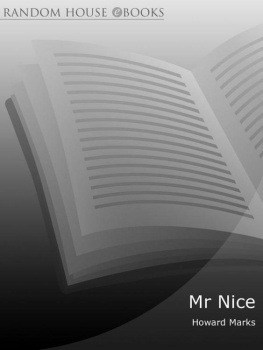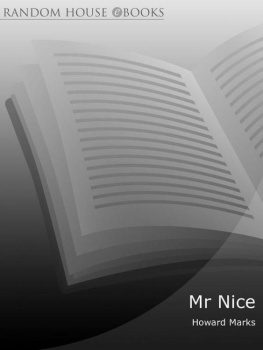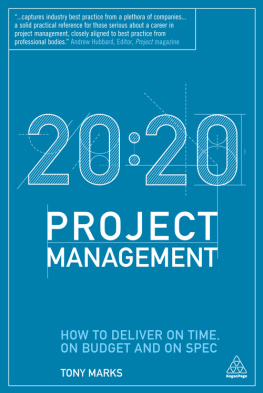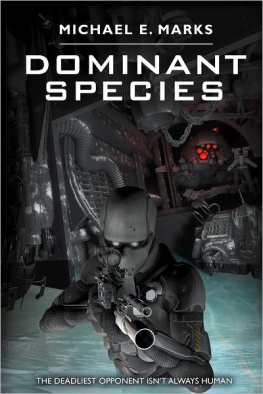Thank you for downloading this Simon & Schuster ebook.
Get a FREE ebook when you join our mailing list. Plus, get updates on new releases, deals, recommended reads, and more from Simon & Schuster. Click below to sign up and see terms and conditions.
CLICK HERE TO SIGN UP
Already a subscriber? Provide your email again so we can register this ebook and send you more of what you like to read. You will continue to receive exclusive offers in your inbox.
We hope you enjoyed reading this Simon & Schuster ebook.
Get a FREE ebook when you join our mailing list. Plus, get updates on new releases, deals, recommended reads, and more from Simon & Schuster. Click below to sign up and see terms and conditions.
CLICK HERE TO SIGN UP
Already a subscriber? Provide your email again so we can register this ebook and send you more of what you like to read. You will continue to receive exclusive offers in your inbox.

Simon & Schuster
1230 Avenue of the Americas
New York, NY 10020
www.SimonandSchuster.com
Copyright 2017 by Lauren Marks
All rights reserved, including the right to reproduce this book or portions thereof in any form whatsoever. For information address Simon & Schuster Subsidiary Rights Department, 1230 Avenue of the Americas, New York, NY 10020.
First Simon & Schuster hardcover edition May 2017
SIMON & SCHUSTER and colophon are registered trademarks of Simon & Schuster, Inc.
For information about special discounts for bulk purchases, please contact Simon & Schuster Special Sales at 1-866-506-1949 or .
The Simon & Schuster Speakers Bureau can bring authors to your live event. For more information or to book an event contact the Simon & Schuster Speakers Bureau at 1-866-248-3049 or visit our website at www.simonspeakers.com.
Interior design by Ruth Lee-Mui
Jacket design by Spencer K Imble
Library of Congress Cataloging-in-Publication Data is available.
ISBN 978-1-4516-9751-3
ISBN 978-1-4516-9761-2 (ebook)
To the fixers and the menders.
To the family who are also my friends.
And to the friends who are also my family.
AUTHORS NOTE
On Aphasia and the Unknown Unknowns
Izena duen guztia omen da
(That which has a name exists)
BASQUE PROVERB
Aphasia is something you never see coming. You are born, and as you grow and develop, you acquire words and language skills that partially make you the person you are. But maybe one day, in the span of a single second, you lose it all. The world of wordsfrom poems to prayers, from stories to songscan suddenly be rendered strange. Though one out of every 250 people is affected by aphasia, the term is not widely known among the general public. I personally knew very little about this condition until I was twenty-seven years old, when an aneurysm ruptured in my brain.
Aphasia can be brought on by all sorts of things, from bike accidents to gunshot wounds, but the most common cause is a stroke. This was how this disorder made its unanticipated entrance into my own life. I suffered a hemorrhagic stroke, a flood in the brain. The path of its damage left its traces in my cells and tissues, which dramatically affected my abilities to speak, read, and write.
Language is wrapped up with our current and remembered sense of identity. We assign certain words to an experience, and some of them become part of our telling and retelling of the eventthe script of our lives. But what happens when someone cant access the most intimate and natural parts of their language anymore? When a linguistic template is taken away, the balance of these interactions is bound to change in unexpected ways. Banter between lovers fails to ignite. Inside jokes among friends are observed purely from the outside. The way family members interest, persuade, and comfort one another can all shift. We use words to describe ourselves to others, but also to describe ourselves to ourselves. This makes language and memory often inextricably intertwined.
When writing about a neurological injury, one faces the most basic challenges of memory itself. In The Seven Sins of Memory , author Daniel Schacter warns that: Past events are filtered by current knowledge, and people seem almost driven to reconstruct the past to fit what they know in the present. Memory is a constant act of creation. As our versions of ourselves change, our memories change as well, unconsciously adjusting their dimensions to our newest understanding of the world. It is hindsight that provides the illusion of unity in our lives, and hindsight is capable of the most astonishing cognitive trick we possess: transforming the impossible into the inevitable.
Your brain is the organ of perception, so when your brain is damaged, there is a chance that your perceptions are damaged too. After my aneurysm ruptured, I lost the ability to use words effectively, though I wasnt fully aware of that fact at the time. As strange as it may sound, I could understand the spoken language around me, but I often couldnt hear how much my own speech was affected. And it wasnt only my external language. My inner voice was almost mute, too, which meant I couldnt always ask myself questions or sort through my own thoughts. I am aware that this peculiar type of dissonance bleeds into my recollections, especially in one particular way: I often sound better in my memories than I actually was.
I started keeping a journal in the hospital soon after the brain injury. It began as a way to interact with others as I rebuilt my fundamental language skills. But it also became a record of my recovery. Throughout this book, I include journal entries I wrote in the year following the ruptured aneurysm. There were almost no audio or video recordings made of me in my acute stages, so this is likely the closest thing I have to capture my aphasic voice. Over the span of twelve months, what appeared on the page changed substantiallya portrait of a mind in reconstruction.
In the throes of my recovery, many of my thought patterns felt unfamiliar to me, and since I had been informed early on that I was living with a language disorder, I suspected language was somehow related to this altered cognition. In the years following my injury, and as my ability to read improved, I slowly sought out models about how language and thought intersect, anything that felt especially relevant to my case. I take a multidisciplinary approach in this book. I include a range of resources, from medical to academic, therapeutic to linguistic, and, of course, anything that came from my own personal experience. Questions of how language affects thought have been asked for centuries. Theoretical models and practical research each illuminate the discussion in certain ways, but they also can directly contradict each other. And since these issues remain open-ended in society at large, this book reflects that lack of certainty. Long after my onset of aphasia, I came to know many other people with the condition, and several members of this community reported to me that their experiences with aphasia didnt much resemble my own. I found this difference initially jarring, but soon realized that I shouldnt have been surprised. Language is not one-size-fits-all. Language is unique to each person who uses it, and when it breaks down at a neurological levellike in cases of aphasiait follows that this experience would also be unique to the individual.
Even though I have regained a lot of my fluency, people with aphasia live with its effects throughout their lifetimesI certainly do. This does put me in a strange position as the author here. I use language to describe a lack of it, chronicling a journey that troubled my very sense of self, which still makes me wonder what recovery can be when considered in such a relative way. After all, what is a memory without a stable identity attached to it? How well could a woman with a language disorder actually recall what people said to her and what she said in response? How could she capture recollections of thought patterns, and how could she come close to relaying how her brain functioned after her brain ceased to function in that way? It is a challenge to say the least, but one propelled by a deep curiosity. Still, with an exploration like this, I think its only fair to question what is likely to be included and what is bound to be excluded, too. Who would trust that woman with a quotation mark if she could not trust herself?
Next page















